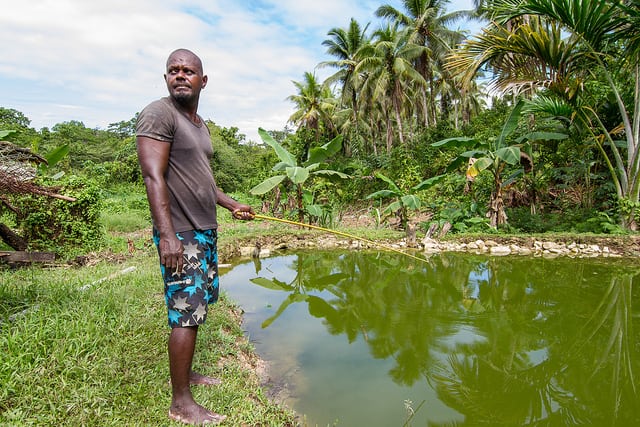Improving food security at the Front lines of Climate Change
Union Aid Abroad-APHEDA’s Pacific Project Officer, Katie Hepworth, gives an overview of APHEDA’s involvement in a project to help support communities in the Solomon Islands adapt to climate change.
The Solomon Islands is on the front lines of climate change. The impacts of climate-related events are already being felt right across the Solomon Islands’ economic, social and environmental systems. The over 70% of Solomon Islanders who live in semi-subsistence communities will be the most severely affected by the effects of climate change.
These communities rely on agricultural production and the harvesting of marine resources for food security and income generation. Their food security will be severely impacted by the increased intensity of extreme weather events (like cyclones), which will destroy or damage crops, and by increases in land and ocean surface temperatures, which will result in declining yields from agriculture and marine harvesting.
Union Aid Abroad-APHEDA has partnered with the Solomon Islands Association of Community Learning Centres (SIACLC) and WorldFish on a USAID funded project to support communities in East Guadalcanal, Solomon Islands to adapt to climate change and improve food security by establishing fresh water aquaculture production. The fish harvested from ponds will supplement marine resources, and will increase the food security of target communities by supplementing traditional modes of fishing and resource harvesting. These communities will also be given the knowledge to participate in provincial and national forums on climate change responses, to ensure that the voice of rural communities is represented and heard.
SIACLC was founded in 2015 to support Community Learning Centres across the Solomon Islands. The new organisation was formed as an outcome of 12 years of work by APHEDA to support community-based education across the Solomon Islands. Over this period, Union Aid Abroad-APHEDA partnered with 28 community learning centres to deliver skills-based and vocational education to some of the most marginalised and remote rural communities in the Solomon Islands. SIACLC – and the work of their member organisations – provides opportunities for Solomon Islanders to remain in their communities, and stem the drift of people to urban centres where they struggle to find decent work.
